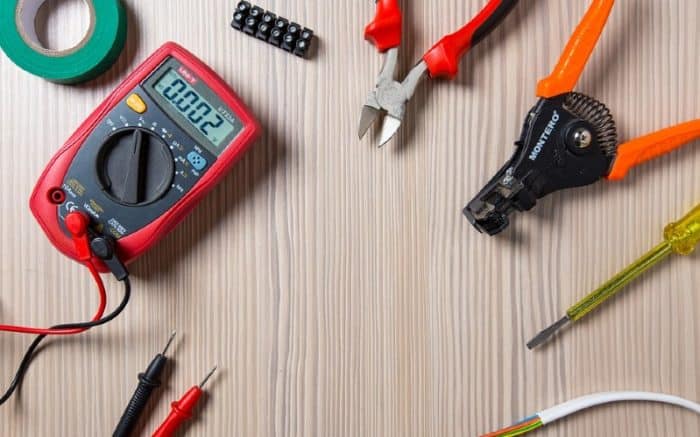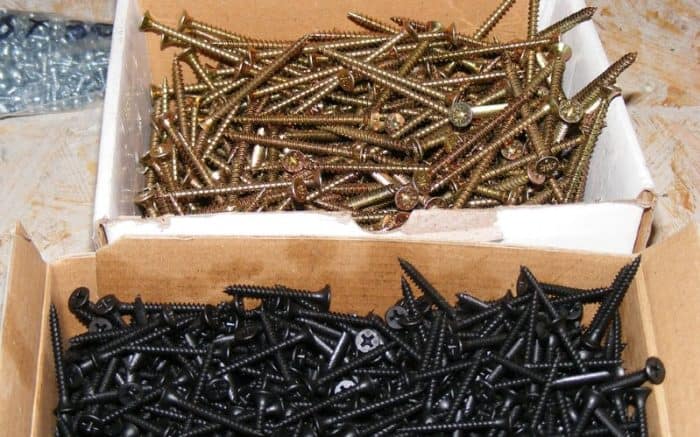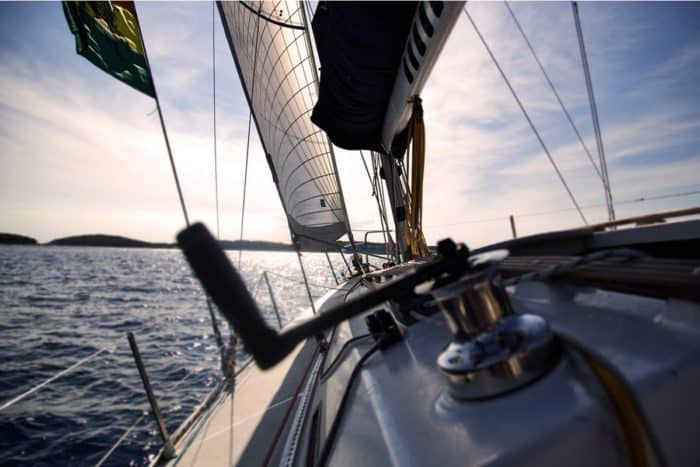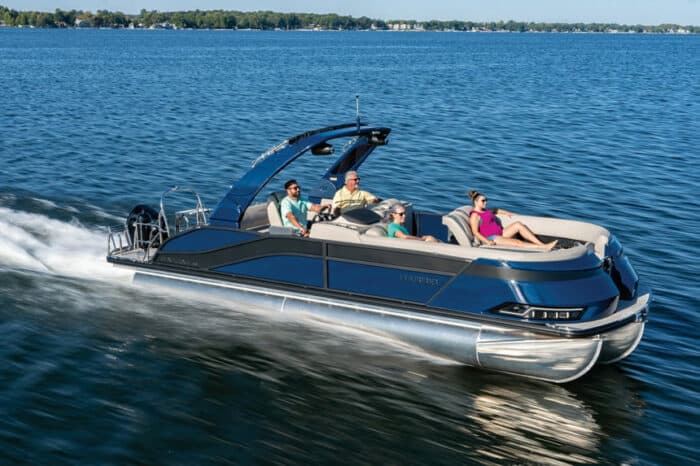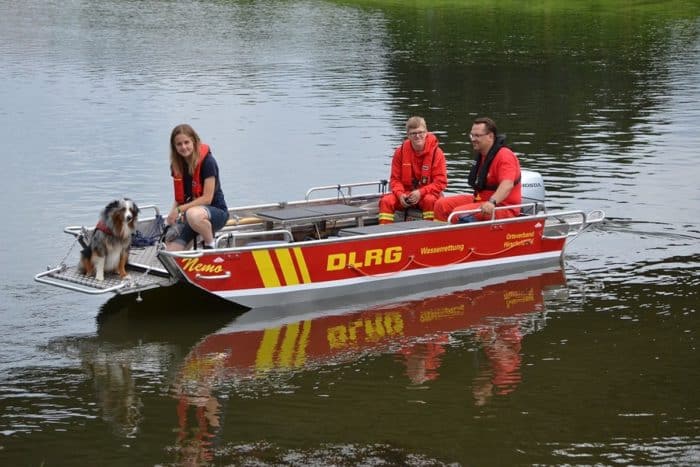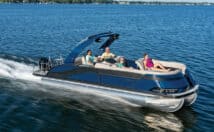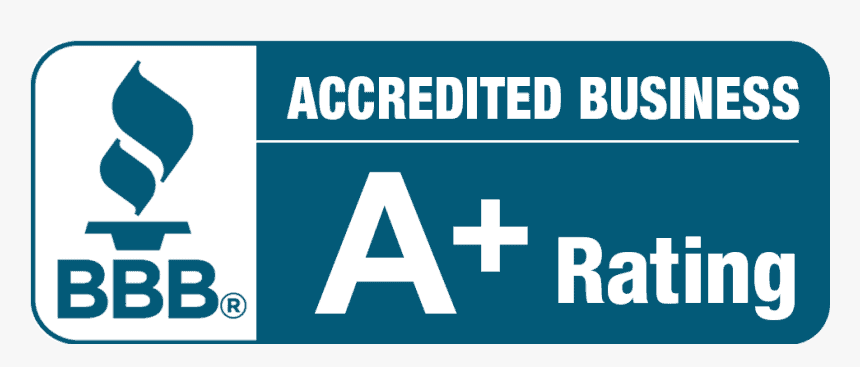Essential Spare Parts and Tool Checklist For Your Boat
Just as with your car, your boat needs to be maintained. There are things that may happen out on the water that will require repairs. Parts break, batteries die, things happen. Every boat needs to be equipped with a basic mechanic’s tool kit. In addition, you need to have a backup supply of spare parts. The things most likely to be needed in an emergency. This stuff won’t fix every problem, but they’ll handle a lot of them.
Remember, most problems on a boat relate to the electrical or fuel systems. So having tools to deal with your battery, your wiring, and your motor are key.
Must Haves For Your Boat Tool Kit
We could list dozens of tools that would be handy to have on a boat. But you don’t have the room. And many of us don’t know how to do a ton of repairs. Not the complicated ones, anyway. So we’ll just cover the basics. Try to always have these on board.
Screwdrivers
You should have a high quality set. Invest in both slotted and Phillips at least. Make sure they’re well made, though. The last thing you want is to strip a screw with a poor quality screwdriver.
Socket Set
Look for a 3/8 drive (3/8″ – 13/16″) socket. Get a wobble extension too, for working in tight spaces. A fitted socket is a must have for removing spark plugs. That eliminates the need for a specific spark plug wrench.
Wrenches
There are a few worth investing in. A good prop wrench will help deal with the propeller if it’s an issue. But in general some open and box wrenches (3/16″ – 1″) are ideal. Consider also getting crescent wrenches – 8″ and 12″ and pipe wrench – 1 3/4″ opening. A full set of Allen wrenches is also a good idea. Finally, look for a spanner wrench. That will help getting something like a fuel filter replaced.
Pliers
Again, several kinds are good. Look into a regular pair and also needlenose. Some Vise-Grips will also be a good idea. Channel lock pliers can round out the set.
Hammer
In an emergency situation, a hammer is often a crucial tool. For getting something loose or forcing something in place. Never hurts to have a hammer handy.
Wire Cutters/Strippers
Your electrical system can suffer all manner of issues. Being able to cut and strip wire is very important. Some crimpers are also a good idea. Look for something that handles all those jobs at once.
Volt/Ohm Meter
A voltmeter or multimeter is good to have handy. You can track down any shorts in your wiring with this.
Moisture Meter
Can’t pinpoint a leak or its source? A moisture meter can track it down for you. Get the pinless kind so it doesn’t need to make contact with the surface.
Utility Knife
These have 1,001 uses. Always have one on hand and you won’t regret it.
Hacksaw Plus Spare Blades
A hacksaw is a cheap and easy way to cut through hoses and tubing. Vinyl, rubber, PVC, it doesn’t matter. If you want to get fancy, you can get a designated pipe and tubing cutter. But a hacksaw is more versatile. It can cut other things as well. You likely won’t need that often, but you never know.
Tape Measure
This is one of those things you always wish you had when you forgot to pack it. How many times have you ever needed a tape measure in your life but not had one handy? It’s a real pain. Always include one in any tool box. On your boat, this can be essential for measuring hoses and tubing. Of course, it’s good for measuring everything. You’ll find a use for it.
Drill
A good cordless drill is always welcome. Something that has a high quality, lithium-ion battery. Plus a full set of drill bits. There are times when this can really come in handy.
Battery Terminal Puller
Battery problems are far too common on boats. That’s why a tool like this is always a good idea. Ever seen a battery with terminals that looked like someone beat them to death with a hatchet? That’s because they didn’t use this tool.
Jumper Cables
When your battery is low or dead, how are you fixing it? You need jumpers. Look for 4 or 6 gauge. Nothing beyond 8, though. And get good quality ones. About 20 feet in length. Just to be safe. A good marine battery charger is never a bad idea.
Flexible Retrieval Tools
You’ve seen these little things before. Get the magnetic kind for some added use. They should come with a claw version and a simple magnetic on a telescoping pole at least. Plus a small mirror. These are invaluable for seeing into tiny spaces. They’re good for picking up dropped screws or other bits that are far out of reach.
Scissors
Keep a quality pair of heavy duty shears or scissors in your tool box. These are another one of those versatile items. It doesn’t have a specific use, but it may come in handy a dozen times.
Spare Parts For Your Tool Box
You keep light bulbs in the house and a spare tire in the car, right? Your boat needs spares too. We recommend all of these as important items to have around.
Battery
This is contentious for some boaters. A battery can be bulky. It can be expensive. If it sits for too long, maybe it even loses a charge. But the moment you have a dead battery that can’t be boosted, it becomes a life saver. So play this one by ear. We think having a spare battery is a great idea. But it may not be practical for everyone. Keep it in mind though. If you can swing it, do so, just in case. And if you do, just keep track of the charge so you know if it’s good.
Fuses
Boat fuses can blow at the drop of a hat. Keep several of different ratings on hand. These can blow because of lighting, a stereo, the radio, who knows? Being prepared means that it’s a minor inconvenience instead of a disaster.
Wires
Sometimes you need to replace a wire instead of trying to repair it. Keep some #10 and #14 wire on hand.
Bulbs
Have a few of every kind your boat uses on hand. It’s never good to lose navigation lights after dark. These are essential for your safety and for other boaters.
Fuel Filters
If your fuel system fails, your boat is dead in the water.. Have a second filter of the same kind as a backup at all times. Fuel can have a number of issues. It could be as simple as filling up with a bad batch of fuel. Or it could get contaminated with water, debris, or something else. A new filter gets you back on track and protects the engine.
Other Filters
You should have oil filters and air filters on hand as well. Both of these protect the boat from further damage.
Oil
Never forget the oil. If your engine springs a leak, a spare quart of oil can make all the difference. You might limp home, but you won’t be adrift.
Transmission Fluid
Like oil, this is a good one to have in reserve. It’s a long shot but if your engine springs a bad leak, this will save the day.
Impellers
You ought to have a spare impeller for every water pump on board. These don’t break too easily, but more easily than they should. Replacing them is not all that hard. But if one goes and you have no replacement, that can seriously damage the engine. It can overheat and shut down on you. Then you’re dead in the water. We recommend always having two spares, just to be safe.
Belts
If a belt in your engine snaps, then that’s it. Keep spares handy to make sure it can keep running.
Hoses and Hose Clamps
Keep a few lengths of rubber hose handy. In a pinch these can work as fuel lines or hydraulic lines. Keep the clamps handy as well to seal them up tight. You’ll want clamps of various sizes. These can hold new or old lines in an emergency. Sometimes they just need to tightly hold a towel and some plastic around a leaking line. Just until you can get to the dock, anyway.
Spark Plugs
Just like your car engine, these get damaged or fouled. If that’s the case, you’ll need to swap in a new one. Have a couple on hand at all times just to be safe.
Extras to Have
These aren’t tools or spares. It’s the miscellaneous stuff you want to have handy.
Screws, Nuts and Bolts
Take stock of what’s on your boat already. Every single screw, nut and bolt you have right now needs a spare. Probably more than one. So we’re looking at a number of different sizes and types. That way you never need to worry about having the right ones on hand.
Electrical Connectors
Various types and sizes are always a good idea. If you need to rig up something in a hurry, these are important. You don’t want to try to rely on nothing more than twisted wires and electrical tape, after all.
Ties or Duct Tape
Having cable ties and duct tape handy is never a bad idea. You literally never know how either one could be the difference between a workable fix and a failure. They’re some of the best “just in case” items you can have.
Electrical Tape
As good as duct tape is, it’s not electrical tape. So keep a role of this handy as well. When you need to tape up some wires, it’s important to have some around.
Flashlight
A good flashlight and some extra batteries is important. Consider a headlamp as well. You can get a cheap one that is extremely bright and has a rechargeable, long lasting battery. That leaves your hands free for other things.
WD-40
A good, water displacing lubricant is of course needed on a boat. This can help clean things up. It can help loosen things. And it can keep things lubricated when you need them to be. Should be in every tool box.
Silicon
It’s good to have some silicon on your vessel for emergencies. Creating a waterproof seal is clearly something of great importance. In case of emergencies, never leave home without some.
Wooden Bungs of Assorted Sizes
Things like your bilge plug and others may need to be replaced now and then. Have some spare plugs or bungs on hand for that reason.
What Causes Most Problems?
Honestly, there are so many variables it’s hard to say just one or two things. The condition of your particular boat can have a big effect. Even the weather on the particular day you go out.
Consider water in the bilge. Just a few extra inches could spell doom for your electrical system. The bow lifts, water levels rise, and your starter gets saturated. It happens a lot. Your fuel system could fail because of bacteria and mold growth in the tank itself. There are a lot of things to consider. That’s why having such a diverse list of tools and spares is essential.
Your Checklist of Items
In a pinch, just refer to this. It covers pretty much everything you want to have handy on your boat.
The Bottom Line
Good boat maintenance is essential to a well functioning boat. When you’re in a car and it breaks down, most of us can change a tire. You can add new wiper fluid or even get a boost for your battery. On the water, all of that is harder to manage. Calling AAA isn’t as easy on the water. Sure, you can get help, but it’s better to manage things on your own first. It’s important to understand basic repairs and maintenance. Plus there’s a real sense of satisfaction to handling problems on your own.
Keep these essential items on your boat all the time. Even if you’re not mechanically-inclined, you’ll be glad you did. They can mean the difference between getting home or calling the Coast Guard for a rescue.
Categories: Boats, nauticalknowhow
